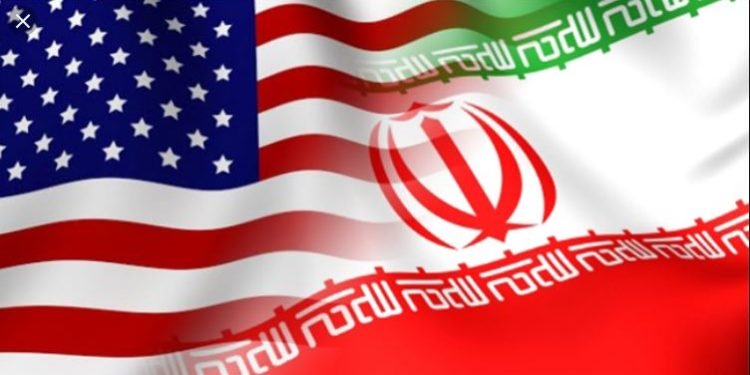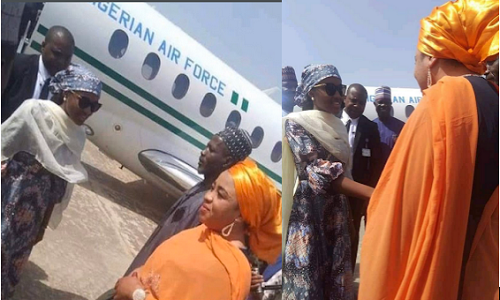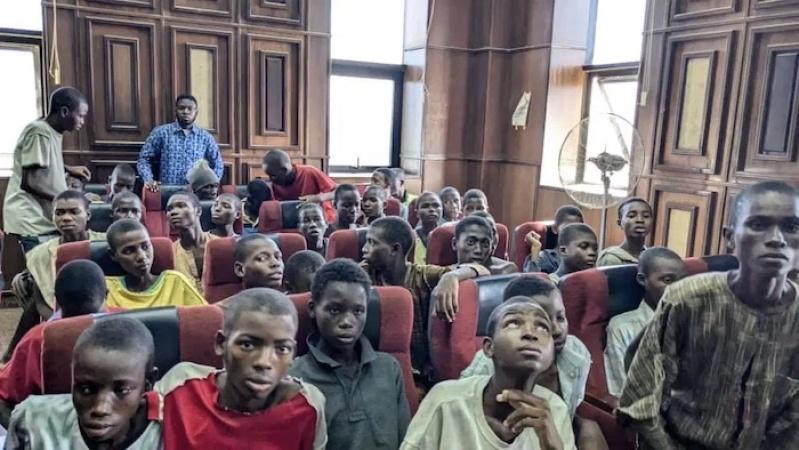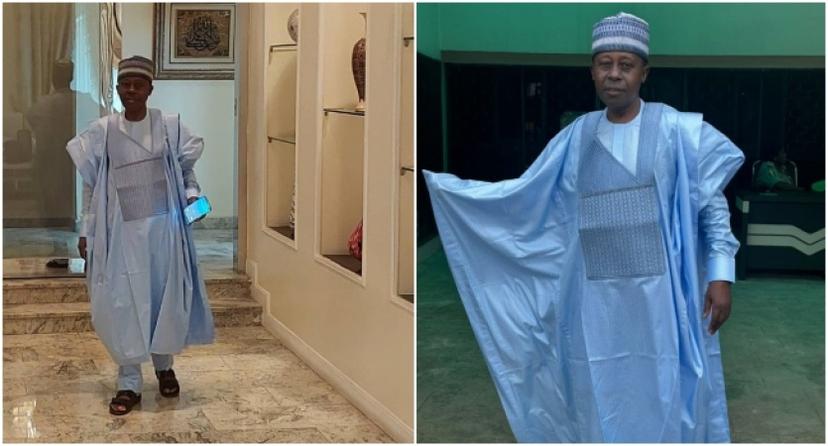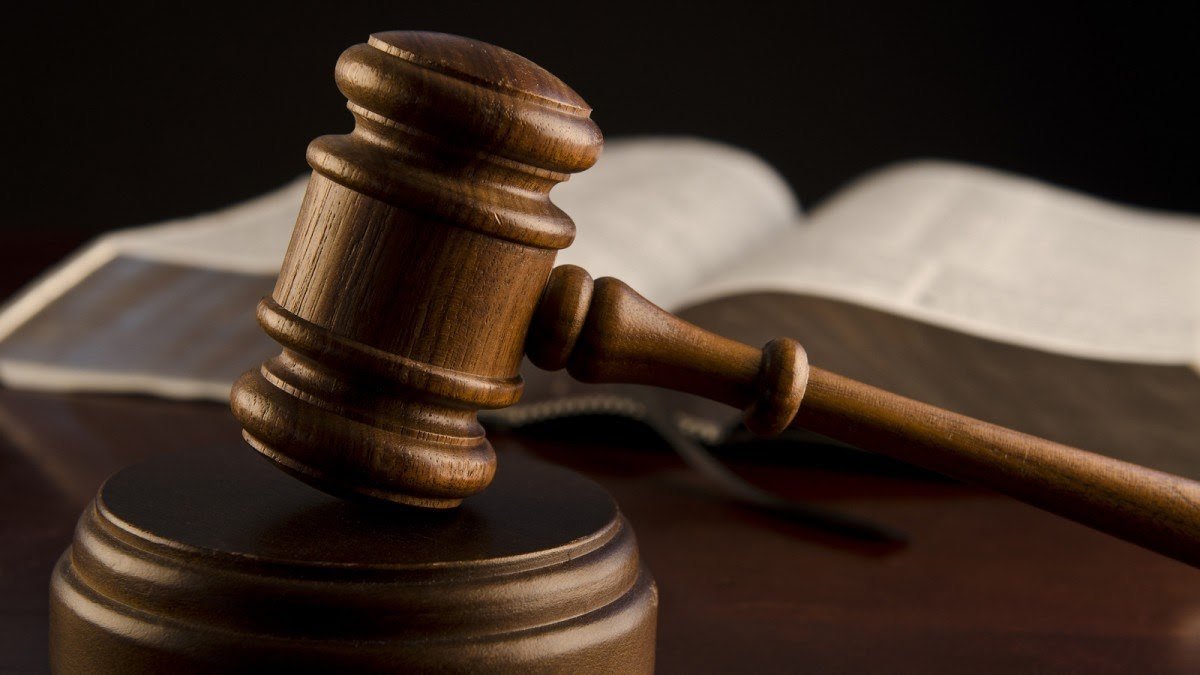
By NWACHUKWU Njoku Esq.
In a matter of days, it is expected that the Supreme Court will deliver final judgements in the appeals severally filed by three contestants of the Imo Gubernatorial election held on March 9, 2019 and in which His Excellency, Rt. Hon. Emeka Ihedioha emerged victorious and was declared winner.
It is the intention in this piece to bring out the background facts of these cases upon which the Supreme Court is expected to stamp its final judicial authority. To this end, and as each matter is separate, let us take each case one after the order.
UCHE NWOSU’S CASE
We need not say much on this case, the reason being that the Supreme Court has on its own declared the candidature of Uche Nwosu void by reason of double nomination. He was the validly nominated candidate of the All Progressive Congress (APC). After his nomination there was another primary election by another faction of the party wherein Hope Uzodinma was nominated candidate. Uche Nwosu approached the court and secured an injunction against APC and Hope Uzodinma. While his APC candidature seemed to have been validated by the court and while the injunction was still valid, Uche Nwosu actively participated in the primaries of another party, Action Alliance (AA) where he was returned also as AA’s gubernatorial candidate. He eventually ran on the platform of AA while Hope Uzodinma ran, ostensibly, on the platform of APC. This was double nomination and a clear violation of the Electoral Act 2010 (as amended) and the result was to render Uche Nwosu’s candidature void. That is just what the court did in a different case filed by another party, APP. The case has already got to the Supreme Court and the Supreme Court has affirmed the voiding of Uche Nwosu’s candidature.
However, while the above case was moving up the trajectory of the courts Uche Nwosu’s petition was fought on the basis that he was a valid candidate of AA.
It was in Uche Nwosu’s petition that the tribunal poignantly stated and held that the allegation that the 2nd Respondent, Emeka Ihedioha did not score 25% in at least 2/3 of 27 local government area “has finally crumbled and should be laid to rest.” Like Araraume, Nwosu hinged his own claim on the oral and documentary evidence of a self-acclaimed statistician. The statistician, PW22, produced a report by which he said that 17,763 votes were unlawfully excluded from the scores of the petitioners. That the 1st petitioner came 2nd but that the 2nd respondent (Emeka Ihedioha) did not obtain enough votes that gave him substantial spread as provided by S 179 (2) and (3) of the constitution.
As in Araraume’s case, the so-called expert witness did not give evidence of his qualification, did not witness the election, did not produce two sets of scores (one made and acceptable to him, and one made by INEC which he purported to be disputing).
The tribunal was equally of the view that PW24 (Nwosu Uche) sat on his right, that it was long after the election and collation, especially on the 3rd of May, 2019 that PW24 received reports from unidentified party agents and came to the conclusion that the 2nd respondent did not win the election with a majority of lawful votes cast in the election.
The Tribunal observed that under cross examination Nwosu Uche had said that “his complaint is against collation of results in Oru East and Oru West and partially in Isiala Mbano. This can only mean that the election was conducted in substantial compliance with the law in at least 24 out of the 27 local governments of Imo state.”
In line with similar reasoning in the petitions of Ifeanyi Araraume and Hope Uzodinma, the Tribunal rejected the petitioner’s claim and affirmed that the 2nd respondent achieved substantial spread of votes as required by law.
On appeal before the Court of Appeal the Court held:
1.That the joint appeal filed on behalf of Uche Nwosu and AA was incompetent and lacked merit as AA had expressed that it was not aggrieved by the result of the election and was not aggrieved by the judgement of the tribunal.
2.That the joint brief of argument filled for the appellants suffers the same fate as the notice of appeal.
3.That the effect of the Supreme Court decision is that the AA has never been a party to Uche Nwosu’s petition. Consequently, the prayer of Uche Nwosu for a runoff election cannot be granted because a political party is pivotal in any election without which a candidate cannot stand alone.
4.That the lower tribunal was right in not accepting PW22 as an expert witness hence he failed to prove any expertise or convince the tribunal that he could analyze electoral data. Consequently, the tribunal was right in rejecting his evidence.
5.The Court of Appeal arrived at the conclusion that “the lower tribunal properly evaluated the evidence placed before it and made the correct finding of fact to the effect that the Appellants, failed to prove their grounds of petitions and rightly dismissed petition.
6.That the lower tribunal was right in refusing the amendment which the appellant sought to make in the figures on the written statements on oath as regards scores of the election as that would go to the root of the matter, and allowing the amendment could alter the nature of the petition before it.
ARARUME’S CASE
The issue of non-fulfillment of the legal pre-condition for declaration as winner, i.e. polling 25% of votes in each of 2/3 of the 27 local government areas in Imo state was a major issue in Ararume’s petition. Petitioners had based their proof solely on the evidence of PW1, one Dr. Nwoke Bright Ihechukwu, who gave evidence as being an expert mathematician. PW1 claimed to have analysed Form EC8D for the Imo Governorship Election held on the 9th of March, 2019, upon contract from petitioners, and came to the conclusion that the 2nd Respondent scored 25% in only 11 local government areas out of 27, short of the legal requirement.
The Tribunal held that PW1 had not established that he was an expert witness, had clearly shown that he did not participate or witness the election, and that being the case his evidence became mere opinion evidence which was not admissible and was accordingly struck out. Similar reasons were given by the court for rejecting or discountenancing the evidence of the 1st Petitioner, Araraume, regarding the non-fulfillment of the requirement of section 179 (2) and (3) of the Constitution by the 2nd Respondent, Emeka Ihedioha.
In the end, relying on the principle of presumption of regularity of acts of public officials until disproved, the tribunal rejected the claim and found in favour of the 2nd Respondent, Emeka Ihedioha.
On appeal the appellants for the first time argued for a runoff. They also subsumed a point of law which the Court agreed was incompetent under the omnibus ground and argued both under the same issue. Gov. Ihedioha’s counsel expectedly filed a preliminary objection. The Court held:
1. That Ararume and his party did not in their petition before the tribunal seek for a runoff election while their petition is based on a non fulfilment of section 179 of the constitution. According to the Court, “[t]he tribunal and this Court [the Court of Appeal] are not Father Christmas and cannot therefore grant to the Appellant a relief not specifically claimed by them. The Appellant in our very firm view cannot reap any benefit from the petition in the event of the process in the absence of a prayer specifically calling for the conduct of a runoff election between the 2nd respondent and the 1st Appellant. In the light of this, the petition is fatally incompetent and liable to be struck out by the tribunal.”
2. That by arguing an incompetent ground of law together with a competent ground under one issue, the issue and all the grounds argued under the appellant had been infected with the same incompetence.
The Court, on the basis of these findings, dismissed the appeal.
Notwithstanding that the appeal had been dismissed under the preliminary objection of the 2nd respondent (Governor Ihedioha), the Court went ahead to determine it also on the merits, in the event that the Supreme Court on further appeal should decide that the preliminary objection was wrongly decided. Consequently, on the merits of the appeal, the Court held:
(a) That the trial tribunal was right in rejecting PW1 as an expert witness and therefore not qualified to prepare Exhibit A4 on which he had made an analysis of the election results and come to the purported conclusion that the 2nd respondent (Governor Ihedioha) did not meet the geographical spread requirements of section 179 of the Constitution.
(b) That the witnesses of the appellants especially PW3 and PW4 (the 1st appellant himself) failed to link their evidence to the documents tendered in bulk by the appellants from the bar; that most of their evidence was hearsay, and that most of those documents were not demonstrated to the tribunal which in effect amounted to dumping them on the tribunal. Accordingly, they were rightly expunged by the lower tribunal.
(c) That the appellants cannot be allowed to rely on an extraneous judgement of the Federal High Court in suit No. FHC/ABJ/CS/235/2019 – ACTION PEOPLES PARTY & ORS. V. INEC & ORS to say that the 1st respondent is now the runner-up in the election because that would amount to allowing the appellants set up a different case, contrary to paragraph 4(1) of the First
Schedule to the Electoral Act.
(d) That the appellants’ petition is hinged on declaratory reliefs, and that the law is that a party seeking such reliefs must adduce cogent, credible, admissible and sufficient evidence, a condition which the appellants had failed to satisfy.
There was also a cross-appeal here, filed by the 2nd respondent (Gov. Ihedioha). The sole issue from the cross-appeal was whether the 1st appellant (1st cross respondent) who did not come second in the election had the locus standi to challenge the election on want of geographical spread. Relying on section 137 of the Electoral Act, the court agreed with the lower tribunal in holding that the 1st appellant/cross respondent was imbued with locus. Accordingly, the cross appeal was dismissed.
There is an apparent contradiction here between the holding of the Court on this issue and its holding on Hope Uzodinma’s appeal. However, a careful analysis can resolve the apparent contradiction. The lead judgement on Hope Uzodinma’s appeal was written and delivered by Stephen Jonah Adah, JCA. That of Ifeanyi Ararume was authored and delivered by Oyebisi F. Omoleye, JCA. Each agreed with the other’s judgement. Why then the seeming contradiction? A careful reading of Adah JCA’s judgement on Hope Uzodinma will show that whereas he agreed that section 137 of the Electoral Act governs the issue of locus standi to sue to challenge the result of an election as declared by INEC, if a candidate wishes to ask for a rerun as a relief what will give him locus is not section 137 of the Electoral Act but section 179 of the Constitution. It should be recalled that Hope Uzodinma from his petition asked for a runoff. He came a distant fourth. He also claimed that some of his votes were excluded which, if taken into consideration, would have made him a winner. When his claim of exclusion of his votes was found not proven, he was left with still being in the fourth decision.
Could the Court have even considered the ordering of a rerun when the other candidates who came second and third and whose interests would have been affected were not joined?
The Court decided, per Adah JCA, and rightly so, that by not joining those other candidates in his petition, his petition and appeal, with regards to this particular relief of a runoff, was incompetent for lack of locus under section 179 of the Constitution. His lordship may not have precisely captured it as italicized above, but a clear reading shows that that is the import of the judgement.
On the other hand, whereas Ifeanyi Ararume also did not come second (he came third), he did not in his petition ask for a runoff. He also did not ask for a runoff on appeal but tailored his brief of argument towards a rerun. The Court rightly declined giving him a relief he did not ask for, notwithstanding whatever is contained in a written address. Having made a short work of that, the question was, did he have the locus to file a petition wherein he did not ask for a runoff? The clear answer was yes. If the Court had decided this question on the basis of a seeming prayer in a written address which was not contained in his petition, the Court would have been wrong.
The seeming contradiction on this point between the Court’s position on Uzodinma’s appeal and its position on Ararume’s appeal is therefore clearly resolved.
HOPE UZODINMA’S CASE
Senator Uzodinma’s petition was not essentially based on the issue of spread, rather, on the alleged exclusion of lawful votes due to him by INEC (3rd Respondent). In stressing this point, he asserted that Ihedioha (2nd Respondent) did not poll majority of votes cast in the election. That if the alleged excluded votes are added to him, he would become the winner.
The conclusion reached by the tribunal on this claim and the claim of non-compliance was that the petitioners did not prove their case as documents tendered in evidence were grossly defective and witnesses for petitioners did not tie them to facts in their pleadings. Also witnesses called were not people who had direct experience of the issues canvassed.
Therefore, rather than calling polling booth or ward agents, local government and state collation agents were put in the witness box to tender documents they never made or give evidence of events they never participated in, in this case voting and so on. Also, the spread of evidence was grossly limited.
Only 28 polling unit agents and 27 local government agents were called to prove allegations that supposedly happened in 388 polling units, and most of these witnesses were discredited on cross-examination.
There was particularly witness PW54. This witness, a police officer who said he coordinated the police officers attached to the polling units and other centres, by his own clear evidence never witnessed the voting in the polling centres nor was he at the collation centre. The policemen attached to these units and centres allegedly gave him the documents (Form EC8As) which he sought to tender. He did not witness the making of those documents and he did not participate in their making. No single one of those who witnessed the making of any of those documents was called in evidence. It must have been a legal magic for the contents of such documents to be relied on in any court or tribunal of law. In fact, the Tribunal would have rendered itself liable to be laughed at by any third year law student if it had gone ahead to rely on these hearsay documents contrary to the elementary principles of evidence. Curiously, it is these documents that Hope Uzodinma is banking on as his trump card before the Supreme Court, simply because a minority judgement of the Court of Appeal had curiously given them some evidential validation.
In the end, the Tribunal held that Hope Uzodinma’s case failed and, applying the principle of presumption of regularity, upheld the election of HE, Rt. Hon. Emeka Ihedioha.
On the merits of the appeal, the court held;
1. That since PW54, the police officer who testified for the 1st appellant in the tribunal below, was subpoenaed by the tribunal, all argument about how he got the subpoena was unnecessary
2. That the real issues were not whether PW54
was competent to testify (which he was) but whether he was the proper witness to tender the copies of Form EC8As given to the police (Exhibits PPP1 to PPP366).
3. That Exhibits PPP1 to PPP366 were not made by PW54; he did not know their content, and that there was no certification on them. Accordingly, the genuineness of the exhibits were in doubt before the tribunal and the tribunal’s decision to expunge them cannot be faulted.
4. That the reference by the tribunal to the other two petitions before it on the same election and the inference drawn from it without giving the parties opportunity of being heard on it was wrong but was inconsequential and did not occasion a miscarriage of justice.
It was in the cross-appeal filed by the 1st Respondent that the issue of geographical spread was canvassed and decided on. The Court held:
(a) That although the appellants (cross-respondents) who had come a distant fourth in the election were competent parties under section 137 of the Electoral Act, they lacked the locus standi to challenge the result of the election on geographical spread and to call for a runoff under section 179 of the constitution, having not come second at the election.
(b) That the appeal on geographical spread was incompetent without joining those who came 2nd and 3rd in the election.
This decision has set a very important precedent in Nigeria’s election jurisprudence. From this decision it is now clear that whereas any person or political party that contested an election can challenge the result of the election under section 137 of the Electoral Act, for anyone or party to request for a runoff he must either have been the runner-up in the election or he must in his petition join as necessary parties the runner-up and every other person or party that by the result of the disputed election scored higher than he did.
CONCLUSION
From the above decisions the Supreme Court is faced with certain fundamental issues:
1. It is now clear that the Court of Appeal has agreed with the Tribunal on findings of facts on all the three matters. The legal principle is that the Supreme Court would not deviate from a finding of fact where the trial court or tribunal on the one hand and the Court of Appeal are unanimous.
For the Supreme Court to make this deviation it must be established (rarely done) that both the trial court/tribunal and the Court of Appeal were perverse on such finding.
2. With the nullification of Uche Nwosu it means that Senator Ararume became the runner-up in the election.
3. It also means that there has to be a re-reckoning of the numbers if the Supreme Court should at all be bothered with that, since the void candidature also voided the votes cast for Uche Nwosu. However, Senator Ararume never asked for a run-off in his petition and only raised the issue on appeal which the Court of Appeal declined to even consider, on clear principles.
4. With the nullification of Uche Nwosu’s candidature on the basis that he was the candidate of both the APC and the AA, the only logical outcome was that Hope Uzodinma was not a candidate of APC and his candidature was also void.
5. Even if No. 4 above were not to be so, Hope Uzodinma would now be third in terms of votes scored and it would be difficult for the Supreme Court to still consider his relief for a run-off since, on the now clear principle established by the Court of Appeal, he did not come second and did not join Ararume as a respondent in his (Uzodinma’s) petition.
-
6. The clincher: before there can be a run-off in this case there must be a re-calculation and after the re-calculation it must be shown that the person who scored the highest vote did not still satisfy the section 179 requirement of geographical spread. The word out there is that if there was any (even if unjustified) doubt about the geographical spread by Gov. Ihedioha, after the voiding of the votes of Uche Nwosu Gov. Iheadioha has overwhelmingly and without any shadow of doubt satisfied the requirements of section 179.
